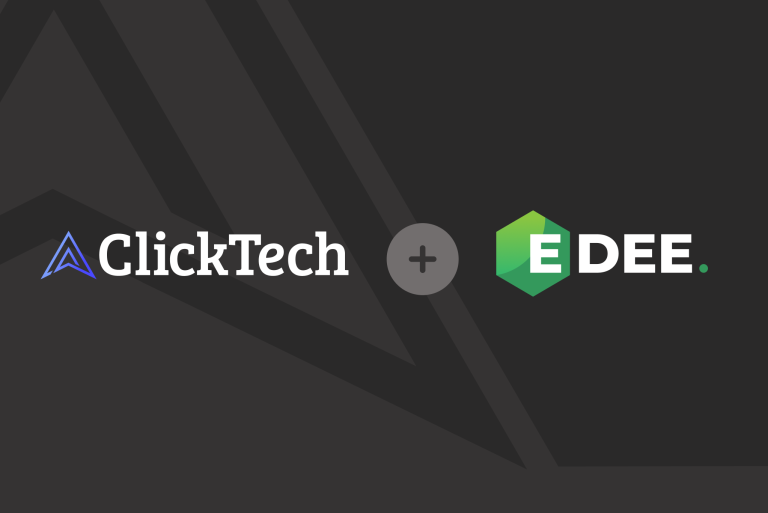It’s no secret that paid search is one of the quickest and most powerful ways to drive laser-targeted traffic to your website. And with plenty of PPC networks to choose from, millions of businesses are investing their money in the hopes of bringing in new leads and customers.
But behind the scenes, there is a shady figure stealing advertisers precious ad spend, without them even realizing! Known as click fraud, this type of fraud has plagued advertisers for decades, and it’s only getting worse.
No matter if you’re a PPC beginner or experienced paid search manager, click fraud can affect everyone.
To ensure you understand what you’re up against, we’re taking a deep dive into the world of click fraud and everything to need to know. By the end of this article, you’ll understand exactly what click fraud is and how you can fight back against this hidden monster.
By now you’re probably wondering what click fraud is, well don’t worry, we have plenty of answers!
What Is Click Fraud?
For many people working in paid search, you’ve probably never heard of the term click fraud before.
Although you might have only heard of the term today, it’s actually been around for several decades since the dawn of pay per click advertising.
Back when PPC networks were first designed, they had very little to no ad fraud systems in place. This means that for every click an ad received, the advertiser had to pay money for it. Not exactly ideal when it’s the same person over and over!
And that, in simple terms, is exactly what click fraud is.
To explain it further, click fraud is the act of fraudulently clicking on pay per click ads with no intention of buying a business’s services or products. Anyone can do it from their PC or mobile device and the effects on advertiser’s budgets can be devastating.
No matter if you use Google Ads, Facebook Ads, or any other platform, click fraud is a growing problem in the advertising industry and costs advertisers billions a year.
But who exactly is purposely clicking on other people’s ads? And what incentive do they have to do it? The main culprits can be split into three main categories.
1. Competitors
The first main culprit of click fraud is direct competitors who often sell the same products or services and therefore bid on the same keywords.
As these competitors are already running their own ads and know how expensive a single click can be, they purposely click on other businesses’ ads to cost them money. By doing this, they can achieve several things.
If a business is running a limited ads campaign with a daily budget, then clicking the ads will speed up how fast that daily budget is used up. Once the daily budget has been reached, in most cases the ad will stop running and disappear from the results altogether. This means that any ad with a position below them is likely to move up to a higher position once the ad is paused for the day.
So by clicking other businesses ads, not only do they increase their competitor’s cost per acquisition, but in some cases, they can also temporarily disable their ads.
In the long term, some competitors can actually click their competition off paid search by making it not profitable for them to continue to run ads anymore.
2. Webmasters
If it’s not competitors clicking your ads, then there’s a good chance it could be webmasters instead.
As part of Google’s display network, there are currently over 2,000,000 partner websites signed up to their AdSense program. This program allows webmasters to display Google ads on their websites in exchange for a percentage of the ad revenue.
Currently, for every click a webmaster gets on their display ads, they receive 68% of the revenue share recognised by Google.
The obvious question for most webmasters is: how can I get more ad clicks to make more money? And this is where the fraud begins.
Instead of spending their time and efforts on growing their website traffic, some webmasters take the lazy options and simply click their own ads.
At low levels, it can just be a click every now and then. But in some cases, there have been webmasters that have built their own automated software to repeatedly click their own ads hundreds of times a day.
3. Fraud Rings
It’s not just competitors and webmasters who are to blame for click fraud. In recent years there has been a huge increase in organised fraud with criminal groups targeting advertiser’s precious ad spend.
With low start-up costs, high profitability, and potentially millions to be made, making money from click fraud is big business.
And with mobile devices being more popular than ever, many fraudsters have utilized the power of mobiles to turn them into money-making machines. In 2020 alone, Google has removed over 600 mobile apps for being related to ad fraud and click fraud.
Unknown to the users of the app, many of them contain malicious code that operates in the background automatically clicking ads and watching videos. Making these apps on a large scale can generate these fraud rings bags of money every single day at the expense of advertisers.
What Are PPC Networks Doing To Stop It?
As click fraud has become more and more common in recent years, PPC networks such as Google Ads have been forced to tackle these fraudulent clicks.
To fight back and ensure that advertisers don’t give away their precious ad spend, Google set up its own traffic quality centre to detect suspicious clicks. Referred to as invalid clicks by Google, these clicks are any type of click that Google doesn’t think is from a real person or has any interest in the ad. Sometimes these invalid clicks can be purely accidental, such as a misclick, whereas other times it can be deliberate clicking by competitors or fraud rings.
Once an invalid click has been detected, Google will automatically issue the advertiser with a credit refund to their account. This significantly helps reduce the amount of ad spend and money advertisers lose to invalid traffic.
Of course, Google isn’t always right, and not everyone trusts Google to be the judge! After all, Google does make over 90% of its revenues from selling PPC ads.
That’s why many third party traffic verification and click fraud protection services have joined the fight against click fraud. Many advertisers want a second opinion on whether their clicks are legitimate or not and the confirmation that their traffic is genuine.
How You Can Tackle Click Fraud In 2020
As you can probably tell by now, click fraud is a big problem for advertisers and it affects plenty of PPC networks besides just Google.
Platforms like Google Ads might have their own traffic quality centres in place, but with little incentive to actively block fraud, how can advertisers trust them?
To combat the threat of click fraud, many advertisers have decided to take fraud prevention into their own hands and look for additional layers of protection. As fraud rings keep getting smarter and more cunning, simple detection systems are becoming less effective by the week.
PPC Protect and ClickCease are services that offer advertisers an additional layer of protection against ad fraud. By utilizing the power of machine learning and AI, the software analyses every click on an advertiser’s ad and quickly learns which clicks are fraudulent.
The clicks that are detected as being fraudulent are automatically flagged and blocked from clicking the advertiser’s ads in the future. By being proactive on blocking click fraud and working in conjunction with Google’s owns invalid clicks detection, the chances of being a victim of click fraud are reduced significantly.
Don’t rely on Google to catch all the fraudsters, and don’t risk wasting your precious ad spend. Sign up to a trial of PPC Protect today, and see how much money you’re losing to click fraud.




